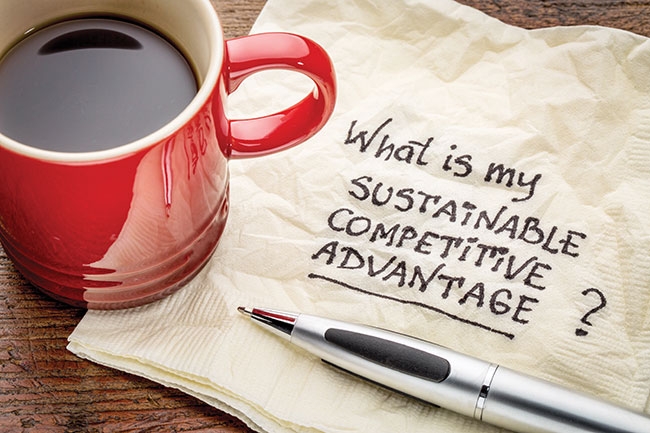
Final Proof: Sustainability on Trend
August 19, 2019
By
Jane Dummer
Sustainable efforts range from bamboo straws to bakery school classes
 Photo: Adobe Stock
Photo: Adobe StockEven though sustainability in the food industry is seen as a must-do, the concepts are not always well understood and may be interpreted differently. The FAO refers to a sustainable food value chain as a food value chain that: 1) Is profitable throughout all of its stages (economic sustainability); 2) Has broad-based benefits for society (social sustainability); and 3) Has a positive or neutral impact on the natural environment (environmental sustainability).
Artisan bakers and commercial bakeries’ efforts to embrace sustainability are growing. It’s important to consider its three main concepts — economic, social and environmental. Consumers evaluate a company’s transparency in terms of access to its values, policies and practices, and the openness of communication.
On the environmental side, in the artisan space, Eric Forbes, the owner and chef de cuisine of the Kimberley City Bakery in British Columbia explains, “We have responded to the call for sustainable and eco-friendly packaging. When we looked at what we had, we set out to change to more environmentally friendly items. We started with our carry out plastic bags. The change was subtle, no one even noticed. It’s now a biodegradable, ink free bag that disintegrates in about a month. We do give the customers choices. Bring your own bags in, use our linen bread bags that we sell, choose paper, or use a plastic bag. July this year, we will move to a paper-first-plastic-second movement.”
Plastic straws were next on the list. Forbes said, “Since the recent acquisition of our slush machine, plastic had to go. In the middle of the Kootenays (in Southeast BC) we are isolated and items can take months to become a staple on wholesale bulk shelves. Amazon and other distributers can be too costly due to our location. We pleaded to our bakery rep, but it was not warranted on their end to supply our small order. At this time, we have stocked up on bamboo and thick paper straws, until we find another supply solution.”
When considering the broad-based social impacts, giving back to society and employee welfare tops the list. Liesbet Vandepoel, director of marketing of Puratos Canada (an international business), refers to the Puratos Bakery Schools as a company-wide initiative to invest in bakery development in other countries. “Being a reliable local partner is part of our international business philosophy. We believe it’s important not only to share our skills and know-how with our commercial partners – bakers’ shops, supermarkets and the food business and services to whom we supply ingredients, but also to help underprivileged communities in the countries where we operate. The Bakery School Foundation has invested in schools in India, Mexico, Brazil and South Africa. We also want improve the lack of skilled labour in the industry. By giving young people the opportunity to learn about the bakery trade, it’s giving them the practical training needed to make a decent living in their country.”
In 2013, Puratos launched a non-profit initiative, their Sourdough Library in Saint-Vith, Belgium. The aim is to protect and preserve the biodiversity of leavening agents and the know-how on using sourdough in baking. The library gathers an authentic collection of sourdoughs (of different varieties) from all over the world. This initiative has provided a real heritage source for bakers and consumers worldwide.
Staffing for a small company can be time consuming and costly. Forbes has a recipe for employee dedication. “We offer our full time salary staff, full health benefits package for them and their family. Our philosophy is family first. If your family is taken care of, your employees will be too. If you have happy healthy employees, it’ll show in their work and customer service. In return, customers will want to shop at your store when they see happy employees and happy owners. This social impact results in an economical impact.”
As the baking industry navigates through the sustainability inputs, Forbes recommends the industry could benefit from sustainability guidelines and governance. For example, Forbes explains, “When it comes to transparency of ingredients and processes for scratch bakers, what does ‘baked fresh in store’ actually mean?” Forbes believes better consumer understanding would emerge if industry guidelines around sustainability were implemented.
Jane Dummer, RD, known as the Pod to Plate Food Consultant, collaborates and partners with the food and nutrition industry across North America.
www.janedummer.com
Print this page
Leave a Reply